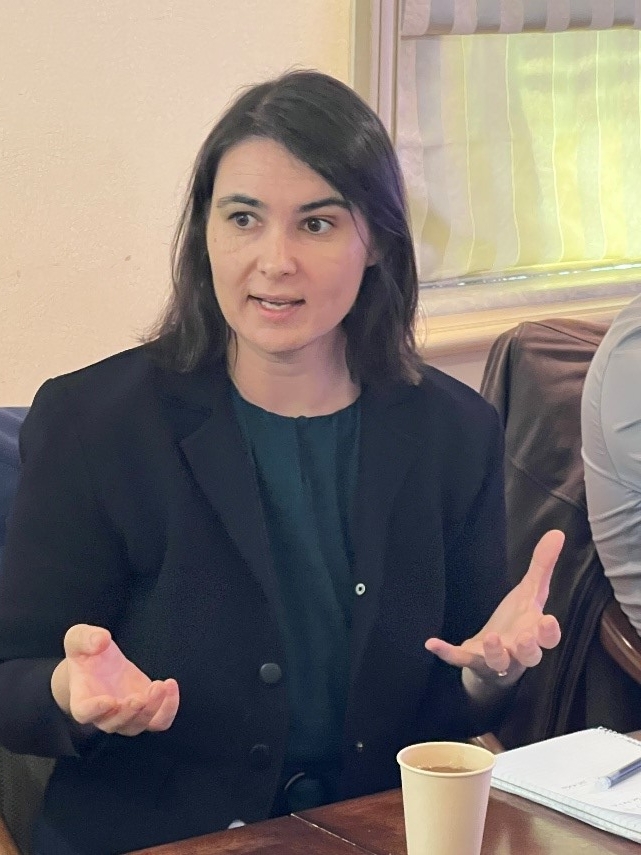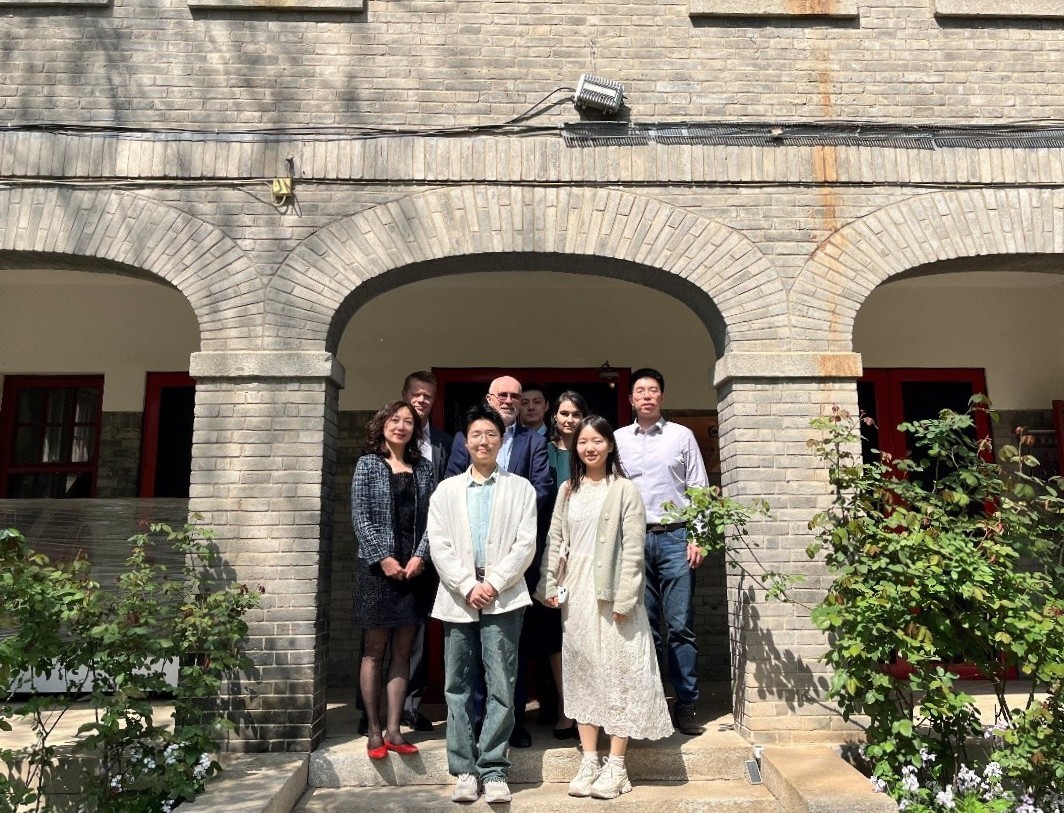
The 49th lecture of the “Adventus Amicorum” seminar series, organized by the Institute of Area Studies, Peking University (PKUIAS), was held on April 10, 2025. The event featured a keynote address by Susannah Patton, director of the Southeast Asia Program at Australia’s Lowy Institute, with participation from Richard McGregor, senior fellow for East Asia at the Lowy Institute, and Sam Roggeveen, head of the International Security Program at the institute. The theme of the seminar was “The Think Tank Paradigm in Southeast Asian Studies from an Area Studies Perspective.” The Lowy Institute, Australia’s leading independent international policy think tank, is renowned for its researchers’ regular columns and commentary in newspapers and new media, positioning it at the forefront of public engagement among Australian international affairs think tanks. The seminar was moderated by Kong Tao, director of the Research Department at the Institute of Social Science Survey of Peking University and senior research fellow at the Digital Finance Research Center. Attendees included Peking University professors Zha Daojiong, Chen Shaofeng, and Chen Changwei; Qin Baoyuan, assistant research fellow at the Academy of Military Sciences; Ruan Ruiying, senior editor at the China Daily Commentary Department; Sun Chang and Su Chang, researchers from the China Institutes of Contemporary International Relations (CICIR) Southeast Asia and Oceania Studies Institute; and others.
The seminar began with Susannah Patton presenting the latest findings and analytical framework of the Lowy Institute’s flagship project, the Asia Power Index. This annual index evaluates the shifting distribution of power in Asia through data-driven assessments, with its comprehensive and representative data widely cited by global media and scholars. Patton noted that traditional evaluations of national power focus narrowly on GDP and military strength, whereas the Asia Power Index incorporates broader, non-traditional metrics. The framework comprises over 130 indicators across two overarching categories — “resources” and “influence” — which are further broken down into eight dimensions: economic capability, military capability, resilience, future resources, economic relationships, defense networks, diplomatic influence, and cultural influence.
Based on the index, Patton argued that Asia is not multipolar but bipolar, dominated by the US and China, with all other nations falling into the categories of “middle powers” or “smaller states.” In terms of “economic relationships,” China holds a dominant position in Asian markets, while the US has experienced significant regression, exacerbated by its lack of a proactive, sustainable economic strategy in the region and further decline under the Trump administration. Patton also analyzed the rankings and capabilities of middle powers such as India, Japan, Australia, and Russia within the index.
The discussion then turned to topics including current US–China relations and trade dynamics, the impact of US foreign policy shifts on Southeast Asia, and Australia’s regional engagement. On the future trajectory of US–China relations, Richard McGregor referenced Australian National University emeritus professor Hugh White’s three possible scenarios. He emphasized that a US withdrawal from Asia would destabilize the region, as China could not provide equivalent public goods, and thus expressed support for a balanced power equilibrium between the two. Regarding the Trump administration’s fluctuating policies and Southeast Asia’s response, Patton noted that ASEAN countries have begun coordinating strategies to address US tariff uncertainties. While she acknowledged potential opportunities for ASEAN unity, she remained skeptical about the bloc’s ability to reach consensus. Other topics included China’s demographic trends and prospects for intra-ASEAN trade and market integration.
During the Q&A session, participants engaged with the speakers on the application of the Asia Power Index framework and models for think tank-academic collaboration. Kong Tao praised the index’s analytical rigor and inquired about data accessibility and researcher autonomy. Patton clarified that foundational data is publicly available on the institute’s platform and has been utilized by scholars and journalists. Guo Xiaoyu, a doctoral candidate from the University of Chinese Academy of Social Sciences, questioned methodologies for obtaining sub-indicator data across different years. Patton explained that the index integrates diverse sources, including Google Trends analysis and UNESCO statistics, processed annually through the institute’s analytical algorithms. She stressed that the framework reflects the institute’s evolving priorities, with economic relationships weighted more heavily but subject to iterative adjustments as geopolitical dynamics shift.

In her closing remarks, Kong Tao proposed the concept of “knowledge partnerships” between PKUIAS and the Lowy Institute, as well as among institutions across China, Southeast Asia, and Australia. This idea garnered widespread support. The seminar not only highlighted the value of data-driven, interdisciplinary approaches in regional studies through the Asia Power Index framework but also marked a significant step in building dialogue mechanisms between academia and think tanks. By fostering knowledge-sharing and collaborative innovation, the event underscored the critical role of universities and think tanks in addressing global challenges and advancing peaceful development in a multipolar world. As China continues to play a pivotal role in Asia’s future, such academic exchanges will deepen regional cooperation and provide robust intellectual support for policymaking.


